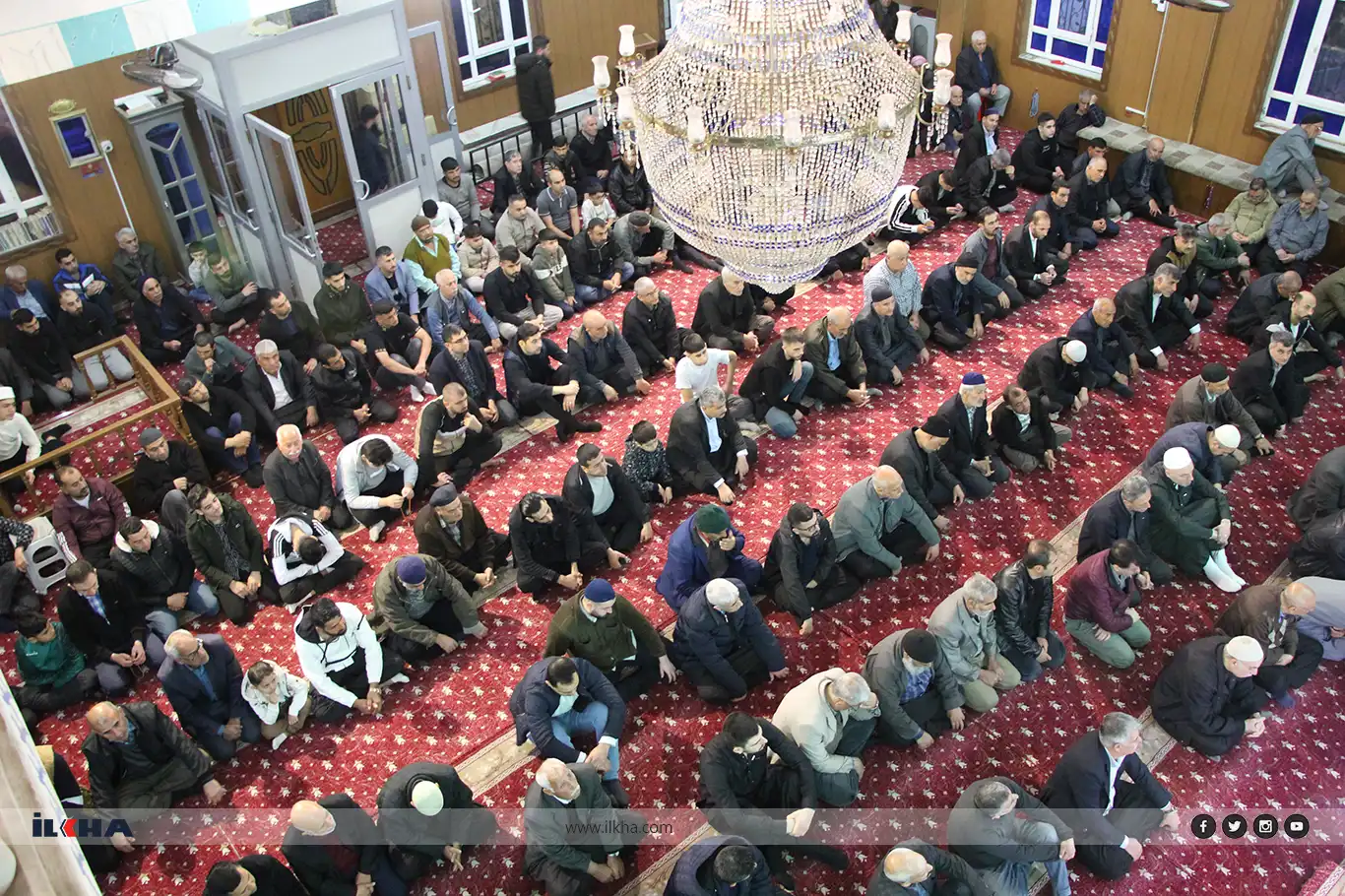Muslims worldwide mark Eid al-Fitr with joy, prayers, and solidarity


Muslims across the globe have begun celebrations for Eid al-Fitr, one of the holiest and most joyous occasions in the Islamic calendar, marking the conclusion of the sacred month of Ramadan.
The day started with Eid prayers held in mosques, open fields, and community centers in cities and villages throughout the Muslim world. From Istanbul to Jakarta, from Cairo to Kabul, worshippers gathered in large numbers at dawn, wearing their best attire, to offer special congregational prayers of gratitude, unity, and reflection.
In addition to the traditional Eid sermon, special prayers were offered for oppressed Muslims in Palestine, Indian-Occupied Kashmir, and East Turkistan, where people continue to endure injustice, occupation, and hardship. The plight of the people in Gaza, where Israeli attacks have devastated lives and infrastructure, remained a focal point of supplication and solidarity during the festivities.
Eid al-Fitr, also known as the "Festival of Breaking the Fast," is a deeply spiritual and communal event that follows a month of fasting, prayer, and self-purification. The celebration is marked by a wide range of traditions that vary across cultures but share the same essence of joy, gratitude, and giving.
Muslims greet each other with "Eid Mubarak", meaning "Blessed Eid," and exchange hugs and heartfelt wishes. The day is often spent visiting relatives, neighbors, and friends. Homes are decorated, and new clothes are worn to mark the occasion. Children receive gifts and money, known as Eidi, while families prepare elaborate meals, particularly sweet dishes such as sheer khurma, maamoul, baklava, and various regional delicacies.
Central to the Eid celebration is the spirit of charity and compassion. Before the Eid prayer, Muslims are obligated to give Zakat al-Fitr—a form of alms—to the needy, ensuring that everyone in the community can partake in the festivities. Acts of kindness, forgiveness, and reconciliation are encouraged as part of spiritual renewal and communal harmony.
In many Muslim-majority countries, Eid al-Fitr is a national holiday, with schools, businesses, and government offices closing for one to three days. In countries with smaller Muslim populations, communities often organize large-scale events, Eid bazaars, and public prayers in parks and rented halls to accommodate the faithful.
While Eid is traditionally a time of festivity, this year’s celebrations come amid ongoing conflicts and humanitarian crises in several parts of the Muslim world. Many Muslim leaders and scholars have urged worshippers to balance celebration with solidarity, prayers, and continued support for those suffering under war, occupation, and displacement.
As the crescent moon heralds the end of Ramadan and the beginning of Shawwal, the Islamic Ummah embraces Eid al-Fitr with renewed hope, faith, and a deepened sense of unity—rejoicing in spiritual accomplishments while remembering the oppressed and less fortunate. (ILKHA)
LEGAL WARNING: All rights of the published news, photos and videos are reserved by İlke Haber Ajansı Basın Yayın San. Trade A.Ş. Under no circumstances can all or part of the news, photos and videos be used without a written contract or subscription.
Former EU foreign policy chief Josep Borrell has delivered a damning indictment of both the United States and the European Union, revealing that over 550 starving Palestinians have been gunned down by American mercenaries at aid distribution points in Gaza — and accusing European institutions of complicit silence.
Sayyed Abdulmalik Al-Houthi, the leader of Yemen's Ansar Allah movement, reaffirmed Yemen’s unwavering commitment to the Palestinian cause, declaring that Israeli threats and aggression will not deter the Yemeni people but will instead deepen their resolve to confront Israeli hostility.
Hamas announced late Thursday that it is engaging in consultations with Palestinian resistance factions regarding a ceasefire proposal put forward by international mediators, aimed at halting Israel’s ongoing genocidal operations in the Gaza Strip and addressing the worsening humanitarian crisis.
An explosion at the Arsenal military plant in Kazanlak, Bulgaria, has killed one worker, regional authorities reported Thursday.